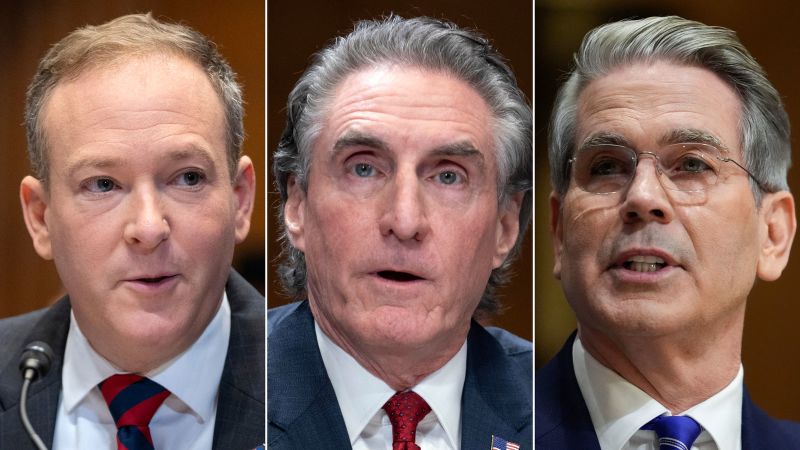“`html

Fact Check Analysis: Takeaways from Day 3 of President-elect Donald Trump’s Cabinet Nominee Hearings
This fact check was requested by one of our informed subscribers who asked DBUNK to analyze key claims from the original CNN article. Submissions like these help our audience ensure the accuracy of widely shared news. You can submit your own fact-check requests through our app or website for free, and we will exhaustively analyze them before publishing results.
Identifying Misinformation and Missing Context within CNN’s Coverage
The article, written by Jeremy Herb for CNN, covers the Senate confirmation hearings for three Cabinet nominees of President-elect Donald Trump’s second administration. However, our analysis uncovered several instances of misinformation, omissions of critical context, and biased framing that readers should be aware of.

Claim: Scott Bessent Stated the Expiring Tax Cuts Are the “Single Most Important Economic Issue”
While the article accurately quoted Scott Bessent’s remarks, it left out crucial context regarding the implications of extending these tax cuts. For instance, the article noted that the Congressional Budget Office (CBO) reports that extending these reductions would add $4.6 trillion to the federal deficit over the next decade but failed to challenge or analyze Bessent’s repeated claims that the deficit issue is due to a “spending problem,” not a revenue shortfall.
Economists widely disagree with this framing. A 2025 report by the Brookings Institution highlighted that while federal spending remains high, making the 2017 tax cuts permanent would significantly exacerbate the debt-to-GDP ratio, leaving the nation’s fiscal health vulnerable.

The Reader’s Question: How Does Bessent Plan to Make Tax Cuts Permanent Without Worsening the Deficit?
Bessent repeatedly stated that cutting taxes stimulates economic activity, theoretically leading to higher revenues, though this rationale lacks supporting evidence. During Trump’s first administration, revenues as a percentage of GDP substantially declined, disproving the assertion that growth would “pay for itself.” Thus, Bessent’s plan to cut taxes without details of corresponding spending reductions raises legitimate concerns about fiscal responsibility.
Claim: Doug Burgum’s Vision of “Energy Dominance” Will Decrease Inflation
The article quoted Doug Burgum as stating that Trump’s energy policies would drive down inflation. Unfortunately, this assertion lacks evidence to support its feasibility. Several independent analyses, including a 2025 review by the International Energy Agency (IEA), suggest mixed effects on energy prices from loosening environmental regulations. While temporary decreases may occur in oil and gas prices, these would likely be offset by long-term costs from climate change, disasters, and reductions in renewable energy investments.
Additionally, Burgum was questioned about drilling within Bears Ears National Monument, a contentious environmental issue. Although he sidestepped this question by committing only to “follow the law,” the article failed to emphasize the Supreme Court’s standing protections for this national monument, which makes unregulated drilling here improbable.

Claim: Lee Zeldin Acknowledged Climate Change “But Did Not Commit to Regulation”
The article did accurately summarize Zeldin’s comments about climate change, particularly his refusal to commit to enforcing the EPA’s regulatory duties on greenhouse gas emissions. However, CNN failed to explicitly clarify that the Supreme Court’s 2007 ruling obligates (rather than merely authorizes) the EPA to regulate such emissions if they are deemed harmful to public health.
Omitting this detail might mislead readers into believing Zeldin has substantial discretion on this matter. This oversight leaves space for misunderstandings about the obligations of federal agencies under long-standing legal precedents.
Conclusion
Misinformation can be found even in trusted outlets like CNN when critical context is omitted, or when unverified assertions are presented without clarification. From fiscal policy to environmental regulation, readers are left with incomplete perspectives on key issues during these confirmation hearings.
At DBUNK, we strive to cut through the noise and empower readers to understand the truth behind these stories. Make informed decisions by downloading the DBUNK app and joining us in the fight against misinformation today.

“`

